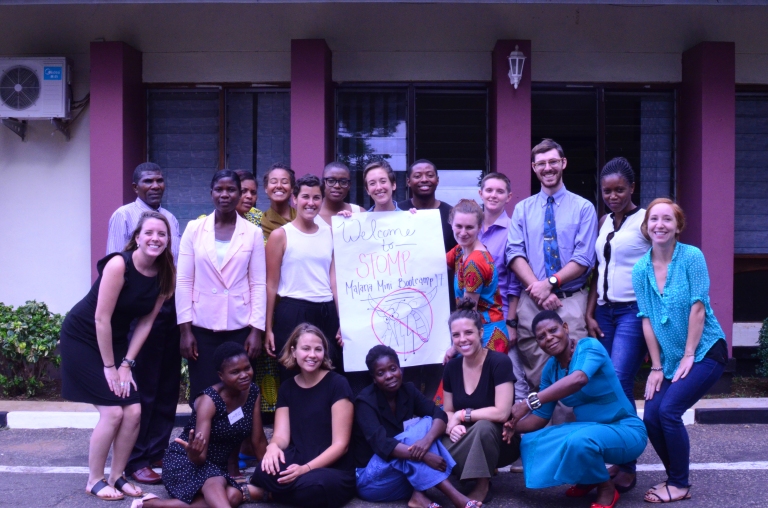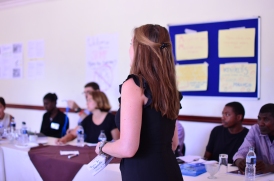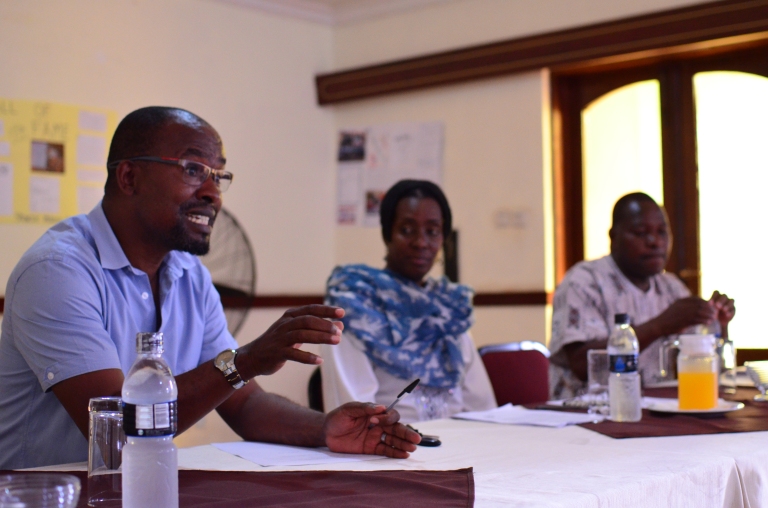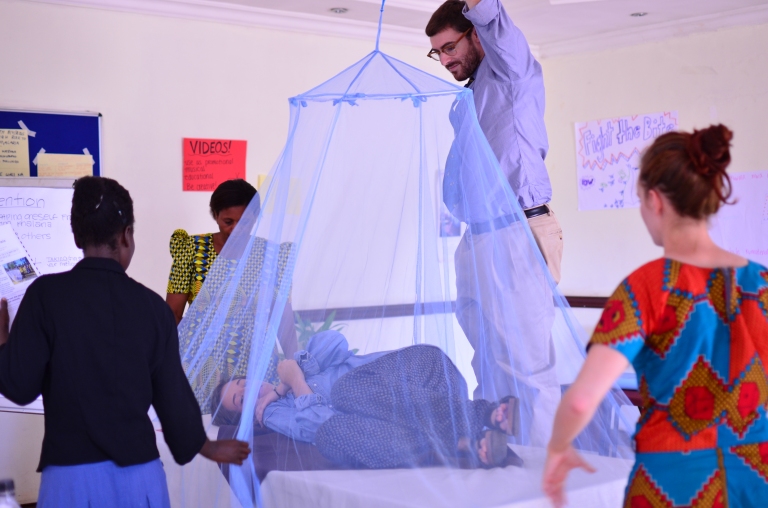This past December, I facilitated my third malaria mini boot camp. Having done the first two in Uganda, this was my first one in Malawi. Just like in Uganda, I had an incredible team who helped me create a fun and interactive camp for Peace Corps Malawi volunteers. We had a wonderful mix of education volunteers, environment volunteers, and their counterparts from across Malawi.
The mission of these camps is to impart the knowledge we have gained from the Africa-wide malaria boot camps in Senegal into the Volunteers of our host country. There only a select few volunteers who can attend the camp in Senegal, so we use these ‘mini boot camps’ to share the knowledge to the remaining volunteers at our post in Malawi.

These camps, and any malaria work completed in Peace Corps, is part of the Stomping out Malaria in Africa initiative. Created in 2011, the Stomping Out Malaria in Africa initiative was built on the vision that through strategic partnerships, targeted training and mobilization of volunteers, intelligent use of information technology, and radically efficient use of seed funding, Peace Corps will focus the efforts of over 3,000 Volunteers in Sub-Saharan Africa to make an immediate and measurable impact in the fight against malaria.

I facilitated this camp with two other volunteers who are part of the Stomp Team here in Malawi that also attended the intensive boot camp in Senegal. It was our mission to take what we learned in Senegal and dissipate that information in a fun, interesting and engaging way to the volunteers. For this mini boot camp in December, we had three objectives:
- To increase the technical knowledge of selected Volunteers and their counterparts to 80% on the post-assessment by the end of the training
- To develop the skills to implement activities related to malaria prevention
- To improve access to resources needed to carry out basic community-level malaria activities for all Peace Corps Volunteers serving in country in the fiscal year (FY) following the training
Our main purpose was to take the information about malaria and create practical ways for volunteers to take these activities and lessons back to their communities.
Over the course of 3 days, we covered the basics of malaria, different myths surrounding the disease, high risk groups, malaria in the local languages, and Grassroot Soccer, among many other things.
As we always encourage cross-sectoral malaria interventions, we also facilitated sessions on how to incorporate malaria prevention interventions into the education and environment sectors.
On the last day, we were able to have a panel of professions from organizations who work on malaria control and prevention in Malawi. We had a representative from the President’s Malaria Initiative (PMI), the World Health Organization (WHO), and Population Services International (PSI). This was an incredible way for volunteers to see what different organizations are doing across Malawi, what the future of malaria work is, and how they can get involved with existing programs.

To end the camp, we had each volunteer and their counterpart teach the group a specific lesson about malaria that they learned throughout the week. This was an excellent way to showcase the variety of activities that are available to volunteers. It also helped the pairs practice co-facilitation, which is never easy!

It was a successful mini boot camp and I am confident that we ignited the spark in many of the volunteers and counterparts. However, there is still so much more we can do as Peace Corps Volunteers.
As I have shared before, the biggest struggle in malaria prevention (among many things) is that people to do not think malaria is an issue in their home, their village, or their country. Whenever I can, I take the time to explain just how big of a burden malaria has on Malawi and Africa as a whole. The statistics don’t lie:
- 214 million cases worldwide;
- Roughly 438,000 deaths (WHO, 2015)
- 90% of all deaths occur in Africa
- Roughly 6.2 million cases annually in Malawi
- Direct costs estimated at $12 billion annually
If that does not seem concerning enough… malaria is also the leading cause of morbidity and mortality in children under 5 and among pregnant women in Malawi. It accounts for 1/3 of all outpatient visits, 40% of all hospitalizations among children under 5, and 40% of all hospital deaths. There are also many other ways that malaria burdens Malawians in everyday life. Malaria has incredible opportunity costs—when you are sick with malaria you cannot work, thus you cannot collect a pay check. It causes disruptions in education for both students and teachers. Deforestation and poor farming also contribute to increasing rates of malaria. Most importantly, malaria causes poverty. Poverty causes malaria. It is an endless cycle that burdens the most vulnerable of populations.
If I cannot convince people to fight malaria with those statistics, personal testimonies, or the endless evidence of the immense burden malaria has on countries, I always share with them why I fight. I fight malaria because eradication is possible and I have hope we can do it in my lifetime. I fight malaria because it burdens the people I have come to love in my time abroad. I fight malaria because it affects the children I love as if they were my own family, who helped me get through my hardest moments in my service. Like our mini boot camp participant, Patrick, I fight because I want life.










